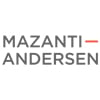-
What are the key rules/laws relevant to M&A and who are the key regulatory authorities?
Domestic M&A transactions in China are governed by laws such as the Company Law and the Anti – Monopoly Law, and administrative regulations like the Provisions on the Review of Concentrations of Undertakings and the Provisions on the Standards for the Declaration of Concentrations of Undertakings by the State Council. For M&A involving publicly traded companies, relevant regulations include the Securities Law, the Measures for the Administration of the Acquisition of Publicly Traded Companies, the Measures for the Administration of Major Reorganizations of Publicly Traded Companies, and the Measures for the Administration of Information Disclosure by Publicly Traded Companies. Foreign – funded M&A are subject to the Foreign Investment Law, the Measures for the Administration of Overseas Investments by Enterprises, and the Measures for the Administration of Strategic Investments in Publicly Traded Companies by Foreign Investors. In cases involving state – owned assets M&A, the Enterprise State – Owned Assets Law and the Measures for the Supervision and Administration of the Transaction of Enterprise State – Owned Assets must be followed.
In 2024, the Chinese government issued several M&A-related policies. In April, the State Council released the Several Opinions on Strengthening Supervision, Preventing Risks, and Promoting the High – Quality Development of the Capital Market. In June, the General Office of the State Council issued the Several Measures for Promoting the High – Quality Development of Venture Capital. In September, the China Securities Regulatory Commission published the Opinions on Deepening the Reform of the Publicly Traded Company M&A Market (the “M&A Six Articles”). Local governments also introduced relevant policies. In December, the Shanghai Municipal People’s Government issued the Shanghai Action Plan for Supporting the M&A of Publicly Traded Companies (2025 – 2027), and at the end of December, the Anhui Provincial People’s Government released the Guidelines on Supporting Enterprises in Conducting M&A.
Key regulatory authorities of M&A transactions includes:
- the State Administration for Market Regulation (SAMR) is in charge of antitrust reviews and the approval of merger filings.
- China Securities Regulatory Commission (CSRC) oversees publicly traded company mergers and acquisitions and examines the compliance of information disclosure.
- National Development and Reform Commission (NDRC) conducts national security reviews in foreign – funded mergers and acquisitions.
- Ministry of Commerce (MOFCOM) is responsible for the approval of foreign – funded mergers and acquisitions, especially those involving industries on the negative list.
- State-owned Assets Supervision and Administration Commission (SASAC) regulates SOE mergers and acquisitions, and approves asset evaluation, transaction pricing, and property rights transfer procedures.
-
What is the current state of the market?
- The market has shown a significant recovery in activity, with transaction volumes continuing to grow. PwC reported a 16% year-on-year decrease in M&A transaction value in 2024, but a 24% increase in transaction volume. For 2025, double-digit growth in M&A transaction volume is projected. The market is dominated by major brokerages and private equity funds, with SMEs also increasing their participation, which leads to a more diversified competitive landscape.
- There has been a significant increase in the number of M&A deals in the technology sector, including defense, military industry, new energy, biomedicine, and the internet. Traditional industries such as manufacturing and retail have also seen growth in M&A values, which are driven by policy – supported industry consolidation and corporate resource integration.
- State-owned enterprises and central enterprises have shown increased M&A activity, with average M&A values in 2024 up 129% and 170% respectively from the 10-year average, reflecting accelerated state capital integration and their role as market stabilizers in a complex economy.
- Cross-border M&A has become an important growth area, with Chinese companies increasing the number of overseas acquisitions to gain technology and market share. The proportion of cross-border transactions in the total M&A deals is expected to rise in 2025.
-
Which market sectors have been particularly active recently?
- Industrials and high – tech remain the most attractive investment and M&A sectors. For example, in January 2025, agricultural giant Zhongji Health planned to acquire 75% equity in Xinjiang Xinye Energy Chemical to enter the coal chemical industry. In 2024, industrials and energy transactions exceeded $4 trillion. Oil and chemical firms used M&A to optimize portfolios and cut costs. In December 2024, Fenghuo Electronics restructured to boost communication equipment R&D capabilities. In January 2025, Aikedi expanded automotive electronics via acquisitions.
- New – energy vehicles, healthcare, and AI are driving M&A activity. Private equity focuses on medical devices. In 2025, 22 M&A funds were set up on the A – share market, with nearly 48 billion yuan in capital. Industry leaders acquire innovative drug and biotech firms to strengthen R&D pipelines.
- State – owned enterprises are leading industrial consolidation, increasing SOE M&A. In January 2025, Chongqing Chuanyi Automation Co. said its controlling shareholder, China Si Lian Instrument Group, planned to transfer 19.25% of its shares to China National Machinery Industry Group or its new entity. In February 2025, multiple listed firms including Dongfeng Share and Changan Automobile announced that Dongfeng Group and Ordnance Equipment Group were planning a reorganization to promote new – energy vehicle chain concentration. Local SOEs also use M&A to take over listed firms and optimize regional industry layouts. The 2024 Shanghai – issued Action Plan for Supporting publicly traded Company Mergers and Acquisitions proposes to guide long – term capital into M&A funds, which are expected to become a key driver of M&A transactions.
-
What do you believe will be the three most significant factors influencing M&A activity over the next 2 years?
Policy orientation is a core driver of M&A activities. In 2024, the CSRC’s “Eight Measures for Deepening the Reform of the Science and Technology Innovation Board to Serve Scientific and Technological Innovation and the Development of New Productivity” and the “Six Measures for Deepening the Reform of the Publicly Traded Company M&A and Restructuring Market” significantly enlivened the market through simplified approval, relaxed valuation restrictions, and encouragement of cross – border M&A.
Technological innovation and industry evolution will continue to drive M&A, especially in high – tech, healthcare, and green energy. The rapid development of AI technology, exemplified by models like Deep Seek, has prompted many tech firms to acquire advanced technology and market share through M&A.
Private equity exit pressure is driving transaction demand. PwC data shows that as of 2024, China’s private equity fund stock – scale was nearly 20 trillion yuan, but only 195 A – share and overseas IPOs occurred that year, far below the number of investment targets. It is expected that private equity funds will accelerate the exit of invested enterprises through industrial M&A and reverse takeovers in the next two years.
-
What are the key means of effecting the acquisition of a publicly traded company?
The main acquisition means for publicly traded companies are as follows:
- Tender Offer: A common method where the acquirer makes an offer to all target – company shareholders to purchase shares under specified terms. It can be a full tender offer or a partial tender offer.
- Agreement – Based Acquisition: The acquirer and the shareholders of the target company sign an agreement to transfer shares. For example, a strategic investor signs an agreement with a major shareholder to acquire a portion of their shares and become a major shareholder. The advantage is flexibility, allowing both parties to negotiate details based on their needs.
- Indirect Acquisition: The acquirer gains indirect control by acquiring the shares of the target – company’s shareholders or through other means. Its advantage is avoiding some direct – acquisition restrictions, like share – lockup periods. However, it has a complex structure involving multiple legal relationships and regulatory requirements.
-
What information relating to a target company is publicly available and to what extent is a target company obliged to disclose diligence related information to a potential acquirer?
For publicly traded companies, more information is publicly available. According to the Securities Law and relevant accounting standards, publicly traded companies must regularly disclose financial data, including balance sheets, income statements, and cash flow statements, which can be found on stock exchange websites and designated information – disclosure media. Non – publicly traded companies have less publicly available information, but basic details such as registration, shareholders, capital contributions, and key personnel can be found on the National Enterprise Credit Information Publicity System. The scope of information disclosure during due diligence depends on mutual agreements and legal requirements. Publicly traded companies have the obligation to provide necessary information to potential acquirers in accordance with laws, regulations, and stock exchange rules. For non – publicly traded companies, disclosure obligations are based on mutual agreements, and information should be provided according to the acquirer’s reasonable requirements, including financial, business, debt, major assets, intellectual property, environmental protection, tax situations, and details of government tax returns, rewards, and subsidies.
-
To what level of detail is due diligence customarily undertaken?
The depth of due diligence varies with deal size, industry, and target – company specifics. Generally, core legal aspects are thoroughly checked, such as: Reviewing original business registration docs to confirm the target’s history, equity structure, investments, branches, and legal status (no revocation, deregistration, or irregularities). Checking real estate registries for asset mortgages or seizures and verifying intellectual property. Scrutinizing major contracts with high values and strict breach liabilities. Also, ensure the business model is legal and all required administrative permits, licenses, and qualifications are in place to avoid illegal – operation risks. For specialized industries, tailored due diligence is needed. For example, for tech firms, assess patent ownership and any potential disputes over service – related inventions.
-
What are the key decision-making bodies within a target company and what approval rights do shareholders have?
The shareholders’ meeting, board of directors, and manager are the management and operation bodies, making decisions according to the importance of the matter. For major matters like M&A transactions involving company mergers, divisions, dissolutions, and liquidations, a special resolution of the shareholders’ meeting is usually required, passed by shareholders holding more than two – thirds of the voting rights. The board of directors decides on general matters such as business plans and investment programs. The manager has the right to decide on daily management matters like small – amount contract signing and personnel allocation. For foreign – invested enterprises, Sino – foreign joint ventures, and Sino – foreign cooperative enterprises established before January 1, 2020, the standing board of directors was the highest authority. However, since the implementation of the Foreign Investment Law and its regulations, a five – year transition period has been granted. Starting from January 1, 2025, the governance structure and decision – making bodies of all such enterprises must gradually comply with the requirements of the Company Law.
-
What are the duties of the directors and controlling shareholders of a target company?
Directors have obligations of loyalty and diligence. They must focus on the company’s interests, avoid conflicts of interest, and not use their positions for personal gain. Under the Company Law, directors must fulfill duties of loyalty (such as prohibiting self – dealing and usurpation of corporate opportunities) and diligence (making reasonable decisions and evaluating acquisition plans). In M&A transactions, directors must conduct due diligence on the acquirer’s qualifications and offer reasonableness, and may engage professional institutions for assessment and advice to shareholders. Controlling shareholders must exercise their rights and fulfill obligations in accordance with relevant laws, regulations, and the articles of association, obtaining shareholder meeting authorization for M&A – related matters such as asset sales and equity disposals, and not abusing control to harm the company or other shareholders.
-
Do employees/other stakeholders have any specific approval, consultation or other rights?
Employee rights protection is a key legal issue in M&A transactions. For state – owned or state – capital – controlled enterprises, M&A matters must consider the opinions of trade unions and employees. If employee resettlement is involved, a resettlement plan must be formulated and passed by the Employees’ Congress. For non – state – owned enterprises, in asset acquisitions or mergers and divisions, the original labor contract remains valid and is inherited by the surviving or newly – established company. In equity acquisition models, there is no change of the entity of labor contract, and the acquirer must continue to perform the existing labor contract. If M&A leads to “significant changes in objective circumstances” such as business line withdrawal or department dissolution, the enterprise can terminate the labor contract but must pay economic compensation. Company creditors, as stakeholders, must be notified in the event of company mergers or divisions. Creditors can demand debt repayment or provision of guarantees but have no direct veto power.
-
To what degree is conditionality an accepted market feature on acquisitions?
Conditional clauses are common in M&A transactions but vary in acceptance depending on transaction type, market conditions, and negotiation positions. In domestic M&A, common conditions include antitrust approval and SOE regulatory approval. In cross – border transactions, additional conditions such as foreign exchange registration and passing the target country’s security review (e.g., the US CFIUS) are common.
-
What steps can an acquirer of a target company take to secure deal exclusivity?
- Execution of Exclusive Agreement or Exclusivity Clause: The acquisition intent letter or framework agreement shall explicitly stipulate that, within a specified period, the target company is restricted to negotiations solely with the acquiring party and is prohibited from engaging with any other potential buyers. For instance, it can be agreed that the target company shall not initiate any form of contact or consultation regarding the acquisition with a third party over the next three months, under penalty of breach of contract. Meanwhile, considering the transaction’s complexity and anticipated negotiation duration, the exclusivity period should be reasonably set, such as 6 to 12 months, to prevent undue disruption to the target company’s normal operations or financing.
- Deposit or Guarantee Payment: Upon signing the intent letter, the acquirer pays a deposit to the target company to demonstrate acquisition sincerity. This enhances the target company’s commitment to the transaction and restrains its actions. The handling of the deposit post – due diligence should be specified, whether it be interest – free refund to the acquirer or conversion into part of the acquisition payment upon formal agreement signing.
- Confidentiality Agreement: At the early stage of acquisition talks, both parties sign a confidentiality agreement to clarify their duty to keep confidential any commercial secrets and financial information obtained during the transaction. This prevents the target company from using such information to contact other potential buyers, indirectly safeguarding the transaction’s exclusivity. It should be stipulated that confidential information is exclusively for evaluating and negotiating this acquisition and cannot be used for other purposes or disclosed to third parties without written consent from the other party.
-
What other deal protection and costs coverage mechanisms are most frequently used by acquirers?
- Break-up Fee: If the Seller prematurely terminates the proposed transaction due to specific events, it must pay the Buyer/Acquirer a certain amount, typically 3%-5% of the transaction value.
- Earn-out Arrangement (also known as “Valuation Adjustment Mechanism”): In some growth industries, the acquirer may agree with the Seller to link the purchase price to the target company’s future performance. For example, a 3-5 year performance-based earn-out period may be set, during which if the target company fails to meet the expected performance, the original shareholders or the target company must compensate for the difference. This reduces the initial payment cost and incentivizes the Seller to assist the target company in achieving value growth after closing. Additionally, it is more common to stipulate a buy-back clause, such as if the target company does not go public within 5 years or encounters a material breach, the acquirer has the right to require the original shareholders or the target company to repurchase the equity at an agreed price. The price is usually “investment principal + fixed proportion of returns”.
- Conditional Closing and Payment Clauses: The transaction consideration is divided into an initial payment and several milestone payments. The acquirer can link the payment of the purchase price to conditions such as performance commitments and regulatory approvals. For example, 50% is paid upfront, and the remaining amount is paid within one year after closing based on the audit results.
- Material Adverse Change Clause: Allows the Buyer to exit the transaction if the target company experiences a significant negative event. However, it is important to clearly define the definition of a material adverse change, such as a revenue decline of over 20% in the current year.
-
Which forms of consideration are most commonly used?
- Cash Payment: The Buyer directly pays the Seller in cash for the target company’s equity or assets. This is the simplest and most direct form of consideration, and one of the most common in China’s domestic M&A transactions, especially in small and medium-sized deals. Cash payment can quickly close the transaction but places high financial demands on the acquirer.
- Stock Payment: The Buyer exchanges its shares for the Seller’s equity, making the Seller its shareholder. In recent years, stock payment has become popular in capital market M&A, especially in strategic acquisitions, as it enables resource integration and long-term cooperation. For example, Disney acquired 21st Century Fox’s assets in 2019 through a $71.3 billion stock deal.
- Hybrid Payment: This combines cash and stock to balance the Buyer’s financial pressure with the Seller’s liquidity needs.
- Asset Swap: The Buyer offers non-cash assets as consideration. For instance, Songfa Co. used asset swap when acquiring Hengli Heavy Industry in December 2024.
-
At what ownership levels by an acquirer is public disclosure required (whether acquiring a target company as a whole or a minority stake)?
For publicly traded company acquisitions:
- First disclosure trigger: The acquirer must submit a written report to the CSRC and the stock exchange and announce it when reaching or exceeding 5% of the target company’s issued shares, and notify the target company.
- Ongoing disclosure after changes:
- Every 5% increment/decrement: If the acquirer’s shareholding increases or decreases by 5% increments (e.g., 10%, 15%), disclosure is required.
- Special disclosure for every 1% change: After holding 5% of the shares, the investor must notify the publicly traded company and issue a prompt announcement within the next trading day for every 1% increase or decrease.
- Exception: If the acquirer’s agreement acquisition results in shareholding reaching or exceeding 30%, a full or partial tender offer must be made to other shareholders unless exempt.
-
At what stage of negotiation is public disclosure required or customary?
For non-publicly traded companies, there is no legal compulsion. As for publicly traded companies, they must disclose the signing of the LOI and basic deal terms (e.g., target assets, transaction method) upon securities regulatory requirements at the initial LOI – signing stage. After substantive negotiations and reaching preliminary terms, the publicly traded company must convene a board meeting to deliberate and disclose the transaction draft, including key terms like valuation, payment method, and performance commitments. Board approval usually means the deal must then go to the shareholders’ meeting for deliberation. If there are related – party transactions or material asset restructurings, separate disclosure is needed. For deals involving state – owned assets, anti – monopoly issues, or cross – border elements, the company must declare to the SASAC, SAMR, or MOFCOM after internal procedures, during which the transaction info might be disclosed in the approval process. Upon deal completion, the publicly traded company must announce the final transaction result, asset/equity transfer, and next steps. If the deal falls through, the reasons and impacts must also be disclosed.
-
Is there any maximum time period for negotiations or due diligence?
There is no unified legal time limit for due diligence and negotiations, which depend on mutual agreements and project complexity. In practice, due diligence for small – and medium – sized projects typically takes 1 – 2 months. For large or complex projects, such as those involving state – owned assets or cross – border transactions, it may extend to 3 – 6 months or longer. For publicly traded company M&A, due diligence may take over six months to meet CSRC and exchange requirements, and longer if there are complex historical issues or financial data adjustments.
-
Is there any maximum time period between announcement of a transaction and completion of a transaction?
In M&A transactions, there’s no fixed maximum duration between announcing and closing a deal. The length depends on various factors, including transaction complexity, regulatory approval progress, and negotiations between parties. It is determined based on the agreed – upon conditions and actual performance.
-
Are there any circumstances where a minimum price may be set for the shares in a target company?
For non – publicly traded companies, the equity transfer price is flexibly determined through negotiation based on asset status, profitability, etc. In publicly traded company tender offers, the offer price for the same type of stock must not be lower than the highest price paid by the acquirer for that stock in the six months before the tender offer announcement.
In state – owned equity transfers: For non – publicly traded companies, the transfer price is generally not less than the assessed value filed and approved. For publicly traded companies, the transfer price is not less than the higher of the 30 – day average closing price before the announcement and the net asset value per share.
-
Is it possible for target companies to provide financial assistance?
According to the Company Law, a joint – stock company cannot provide gifts, loans, guarantees, or other financial assistance to others for acquiring its or its parent’s shares, except for employee stock ownership plans. For the company’s benefit, upon a shareholders’ meeting resolution, or a board resolution authorized by the articles of association or shareholders’ meeting, the company may provide financial assistance for others to acquire its or its parent’s shares. The total financial assistance can’t exceed 10% of the issued share capital. A board resolution requires a two – thirds majority of all directors.
Therefore, financial assistance rules mainly apply to joint – stock companies, not to limited liability companies. China regulates financial assistance for joint – stock companies via a “general prohibition plus exceptional permission” model. Exceptions are: first, when the company implements an employee share ownership plan; second, when, for the company’s benefit, it’s approved by the shareholders’ meeting or board of directors to maintain the company’s interest. Moreover, if the target company and buyer have an affiliate relationship or financial assistance, extra approval procedures are needed to ensure transaction fairness.
-
Which governing law is customarily used on acquisitions?
There is no mandatory legal provision on governing law in M&A transactions in China. For domestic deals, Chinese law typically applies; for cross – border ones, parties often agree on the law, such as that of the target’s location, the dominant party’s location, or a mutually agreed third country. However, the transaction will still be subject to the target country’s or region’s laws. Especially when the target is in China, local Market Supervision Bureaus may require the target to provide Chinese – law – based templates for the share transfer agreement, shareholders’ resolutions, and articles of association. Otherwise, the equity transaction’s closing and implementation (i.e., shareholder change registration) might not be registered or filed by the local bureau.
-
What public-facing documentation must a buyer produce in connection with the acquisition of a listed company?
- The acquirer shall submit a Short – Form Rights Change Report when its shareholding in a publicly traded company reaches or changes by 5%, covering basic acquirer information and shareholding purposes. If the acquirer’s stake exceeds 20%, or it becomes the largest shareholder or actual controller, a Detailed Rights Change Report must be submitted, which should include more detailed acquisition information.
- In a tender offer, the acquirer must first release an abstract of the offer report, disclosing key details like its identity and the offer price. Then, it should publish the full offer report, setting out the acquisition plan in full. Moreover, it needs to hire financial advisors and lawyers to give professional opinions on the company’s board report and the Detailed Shareholding Change Report.
- In an acquisition by agreement, the acquirer should first release an abstract of the acquisition report, followed by the full report, along with professional opinions from financial advisors and lawyers.
- If the acquirer fails to disclose the above information in a timely manner as required, the CSRC may issue warnings, impose fines, or ban the violator from the market. Serious violations may lead to the transaction’s revocation.
-
What formalities are required in order to document a transfer of shares, including any local transfer taxes or duties?
- Execution of the Share Transfer Agreement and Internal Procedures: The share transfer agreement should be executed, and internal company procedures, such as shareholders’ resolutions and the right of first refusal for other shareholders, should be fulfilled.
- Change of Ownership Registration: Submit an application for equity change registration to the local Market Supervision and Administration Bureau of the target company, and record the transferee’s information in the company’s internal register of shareholders. For public M&A transactions, transfer registration procedures should also be carried out with the local branch of China Securities Depository and Clearing Corporation Limited, and documents such as the rights change report should be disclosed to the public.
- Tax Declaration and Filing: Update tax information. The acquirer must pay stamp duty, and the transferor must pay individual or corporate income tax in addition to stamp duty (exempt if eligible).
Additional Procedures for Special Cases: In cases involving foreign investment, pass the foreign investment negative list review. For domestic companies acquiring overseas assets, complete overseas investment filing procedures. If the acquisition target is state-owned assets, carry out asset appraisal and in – venue trading procedures. If the acquisition meets the declaration criteria for business concentration, make a prior declaration to the national market supervision department.
-
Are hostile acquisitions a common feature?
Hostile takeovers are common tools in capital market games. Publicly traded companies vulnerable to hostile takeovers often have dispersed shareholding structures, low major – shareholder stakes, and low market values. Hostile takeovers are contests between capital forces and regulatory limits. Due to policy restrictions, they aren’t common in China. Especially after the 2020 revision of the Measures for the Administration of Acquisitions of Publicly Traded Companies, which tightened acquisition fund supervision, raised information disclosure requirements, improved tender offer rules, expanded exemption scope, and strengthened protection for small investors, the difficulty of hostile takeovers significantly increased.
In the past decade, China’s capital market has seen at least four classic hostile takeover cases. In 2015, the Baoneng Group tried to gain control of Vanke by buying shares on the secondary market, sparking wide – spread attention but ending in failure. In 2024, Hisense Network Energy’s successful acquisition of Kolin Electric was a rare recent success.
-
What protections do directors of a target company have against a hostile approach?
Directors of the target company must act in accordance with their fiduciary and due diligence obligations to the company. In practice, to counter hostile takeovers, directors generally may, within the rights and powers prescribed by law and the articles of association, promote the adoption of two categories of measures by the company: preventive and responsive.
Preventive measures typically include promoting amendments to the articles of association to introduce provisions such as “supermajority clauses” and “staggered board clauses” to increase the difficulty for an acquirer to obtain control of the company.
In addition, when the company is facing a hostile takeover, directors may promote the adoption of responsive measures such as “white knight” (seeking a friendly company to compete with the hostile bidder), “golden parachute” (entering into contracts with executives stipulating substantial compensation in the event of termination due to an acquisition, thereby increasing the cost of acquisition), “greenmail” (selling shares to a potential hostile bidder in exchange for a commitment not to attempt an acquisition), “scorched-earth policy” (selling core assets or incurring large debts to reduce the attractiveness of the company to the acquirer), “Pac-Man defense” (the target company acquires the hostile bidder after being subject to a hostile bid), or initiating litigation against the hostile bidder for illegal or unlawful acts. Notably, the current Company Law has introduced the authorized capital system, which allows the board of directors of a joint-stock company to issue shares within the authorized scope without separate approval from the shareholders’ meeting. This enables the board to freely issue a certain number of shares to implement a Shareholder Rights Plan, or “poison pill,” to counteract hostile takeovers.
-
Are there circumstances where a buyer may have to make a mandatory or compulsory offer for a target company?
In general, buyers aren’t forced to make mandatory offers for target companies, except in special cases or as agreed upon by shareholders. In mergers and acquisitions of limited liability companies, buyers usually have no such obligation unless exceptions like tag – along rights are stipulated in the articles of association or shareholder agreements. In contrast, for publicly traded company M&A, China’s Securities Law and relevant regulations establish a mandatory tender offer system. This system aims to protect minority shareholders and maintain market fairness and stability. Specifically, when an acquirer’s shareholding reaches 30% and they continue to increase their stake, or when indirect acquisition leads to a change in control, or when a partial offer’s predetermined ratio exceeds 30%, a full tender offer to all shareholders is mandatory. The offer price must not be lower than the highest trading price in the past six months, unless exempted. Exemptions include state – owned asset transfers, special equity changes, or other scenarios approved in advance by the CSRC.
-
If an acquirer does not obtain full control of a target company, what rights do minority shareholders enjoy?
Under PRC laws, minority shareholders mainly enjoy the following rights:
- Right to Information: This includes the right to inspect and copy the company’s articles of association, shareholder register, records of shareholders’ meetings, board resolutions, supervisory board resolutions, financial and accounting reports, and to review the company’s accounting books and vouchers. Shareholders may also engage lawyers or accountants to assist in exercising these rights.
- Right to Submit Proposals: A shareholder, or shareholders collectively holding more than 1% of the shares of a joint – stock company, may submit a temporary proposal in writing to the board of directors ten days before the shareholders’ meeting.
- Right to Interrogate: Shareholders may question the company’s management, directors, supervisors, and senior executives about the company’s operations.
- Right of Minority Shareholders to Request Share Repurchase: In cases of company merger, division, transfer of major assets, etc., minority shareholders may request the company to repurchase their shares. Additionally, if controlling shareholders abuse their rights, causing serious harm to the company or other shareholders, those other shareholders also have the right to request repurchase.
- Fair Exit Right: If the acquirer triggers a mandatory general offer, minority shareholders have the right to sell their shares to the acquirer on the same terms, except in cases where the offer is legally exempt.
-
Is a mechanism available to compulsorily acquire minority stakes?
Generally, compulsorily acquisitions are prohibited. However, under China’s Securities Law, when an acquirer, acting alone or in concert with others through agreements or other arrangements, reaches 30% of the issued voting shares of a publicly traded company, they must lawfully make a tender offer to all shareholders for all or part of the shares if they continue the acquisition, except for circumstances exempted by the CSRC regulations mentioned in Question 26.
In addition to the mandatory offer requirement for major shareholders, China’s Company Law also grants minority shareholders the right to request share repurchase at a reasonable price under specific circumstances. This includes the right to request repurchase for dissenting shareholders and in cases where the controlling shareholder abuses their power to harm the company or other shareholders. Moreover, Chinese law permits shareholders to agree on special rights such as drag – along and tag – along rights, which can be regarded as mechanisms for the compulsory acquisition of minority shares.
China: Mergers & Acquisitions
This country-specific Q&A provides an overview of Mergers & Acquisitions laws and regulations applicable in China.
-
What are the key rules/laws relevant to M&A and who are the key regulatory authorities?
-
What is the current state of the market?
-
Which market sectors have been particularly active recently?
-
What do you believe will be the three most significant factors influencing M&A activity over the next 2 years?
-
What are the key means of effecting the acquisition of a publicly traded company?
-
What information relating to a target company is publicly available and to what extent is a target company obliged to disclose diligence related information to a potential acquirer?
-
To what level of detail is due diligence customarily undertaken?
-
What are the key decision-making bodies within a target company and what approval rights do shareholders have?
-
What are the duties of the directors and controlling shareholders of a target company?
-
Do employees/other stakeholders have any specific approval, consultation or other rights?
-
To what degree is conditionality an accepted market feature on acquisitions?
-
What steps can an acquirer of a target company take to secure deal exclusivity?
-
What other deal protection and costs coverage mechanisms are most frequently used by acquirers?
-
Which forms of consideration are most commonly used?
-
At what ownership levels by an acquirer is public disclosure required (whether acquiring a target company as a whole or a minority stake)?
-
At what stage of negotiation is public disclosure required or customary?
-
Is there any maximum time period for negotiations or due diligence?
-
Is there any maximum time period between announcement of a transaction and completion of a transaction?
-
Are there any circumstances where a minimum price may be set for the shares in a target company?
-
Is it possible for target companies to provide financial assistance?
-
Which governing law is customarily used on acquisitions?
-
What public-facing documentation must a buyer produce in connection with the acquisition of a listed company?
-
What formalities are required in order to document a transfer of shares, including any local transfer taxes or duties?
-
Are hostile acquisitions a common feature?
-
What protections do directors of a target company have against a hostile approach?
-
Are there circumstances where a buyer may have to make a mandatory or compulsory offer for a target company?
-
If an acquirer does not obtain full control of a target company, what rights do minority shareholders enjoy?
-
Is a mechanism available to compulsorily acquire minority stakes?





























